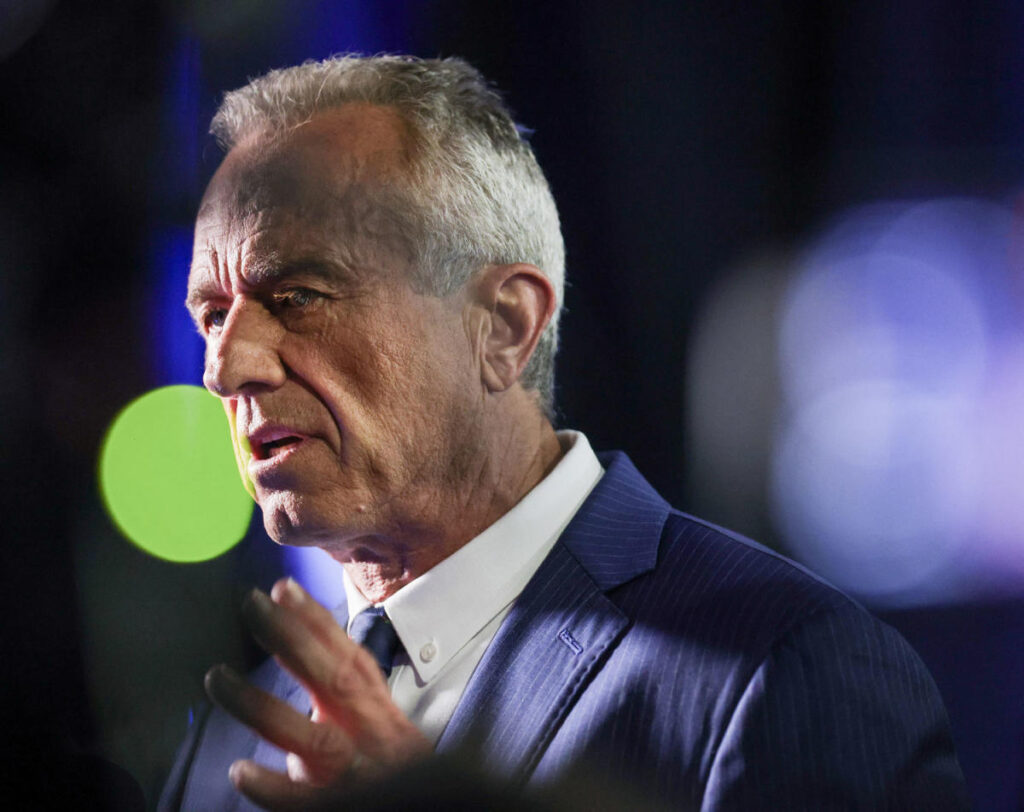President-elect Donald Trump’s nomination of Robert F. Kennedy Jr. for the position of Secretary of Health and Human Services has raised alarms within the public health community due to Kennedy’s history of disseminating misinformation concerning various health issues. Kennedy, who previously suspended his presidential campaign, made health a central theme of his agenda, advocating for the reduction of pharmaceutical influence in government, tackling chronic health problems in children, and improving food safety. His proposals, ranging from supported scientific ideas to those debunked over time, reflect a contentious perspective that worries many health officials who fear that his confirmation could undermine public confidence in health systems.
Kennedy is perhaps best known for his anti-vaccine stance, which has notably influenced public perceptions around vaccines in the United States. He has propagated the debunked theory that the measles, mumps, and rubella (MMR) vaccine is linked to autism, despite extensive research disproving this claim. Moreover, he has called the COVID-19 vaccine “the deadliest vaccine ever made,” ignoring data that demonstrates its safety. While he has expressed opposition to mandatory vaccination policies, Kennedy claims he does not wish to abolish vaccines entirely, instead advocating for individuals to have access to safety studies to make informed decisions.
On the topic of raw milk consumption, Kennedy has publicly professed his preference for raw milk, a choice that health experts warn can lead to foodborne illnesses due to the presence of pathogens in unpasteurized dairy. While some states allow the sale of raw milk, health authorities, including the CDC, emphasize that pasteurization is crucial for food safety. Given the recent outbreaks of bird flu, consuming raw milk poses added risks that concern health officials. Kennedy’s advocacy for raw milk has drawn criticism and underscores the risks tied to misinformation surrounding food safety.
A central theme of Kennedy’s activism is the regulatory approach toward pesticides, particularly glyphosate, a herbicide which the International Agency for Research on Cancer has classified as “probably carcinogenic to humans.” However, the Environmental Protection Agency (EPA) has not established a direct link, indicating a divide in research that highlights the ongoing debate over pesticide safety. Additionally, Kennedy made claims regarding the pesticide atrazine’s potential influence on gender identity in children, pointing to studies in non-human species while lacking concrete evidence for similar effects in humans.
Kennedy has also positioned himself as a critic of fluoride, urging its removal from public drinking water, claiming associations with various health issues. Major health organizations, including the CDC and the American Academy of Pediatrics, counter that fluoride at regulated levels is safe and aids in reducing dental cavities. His approach to stem cell therapy, which involves some unapproved practices, reflects a broader skepticism about established health regulations—the FDA has warned against misleading claims made by for-profit stem cell clinics. Furthermore, Kennedy has made unsubstantiated claims linking heavy metals found in food to autism and other health concerns, despite evidence suggesting no such connections exist.
Throughout the COVID-19 pandemic, Kennedy’s promotion of unapproved treatments like ivermectin and hydroxychloroquine, coupled with racially charged conspiracy theories about the virus’s selective impact, demonstrate a willingness to spread unfounded claims for personal gain or platform validation. He has also indicated beliefs linking cellphone radiation to cancer, although current scientific consensus does not support this notion, and misrepresented the causes of HIV/AIDS in his rhetoric. His assertions about antidepressants’ role in mass shootings have similarly been refuted by research showing no correlation. Collectively, Kennedy’s approaches to these various health topics portray a figure at odds with established public health norms, raising concerns over the potential ramifications of his leadership should he be confirmed as HHS secretary.

